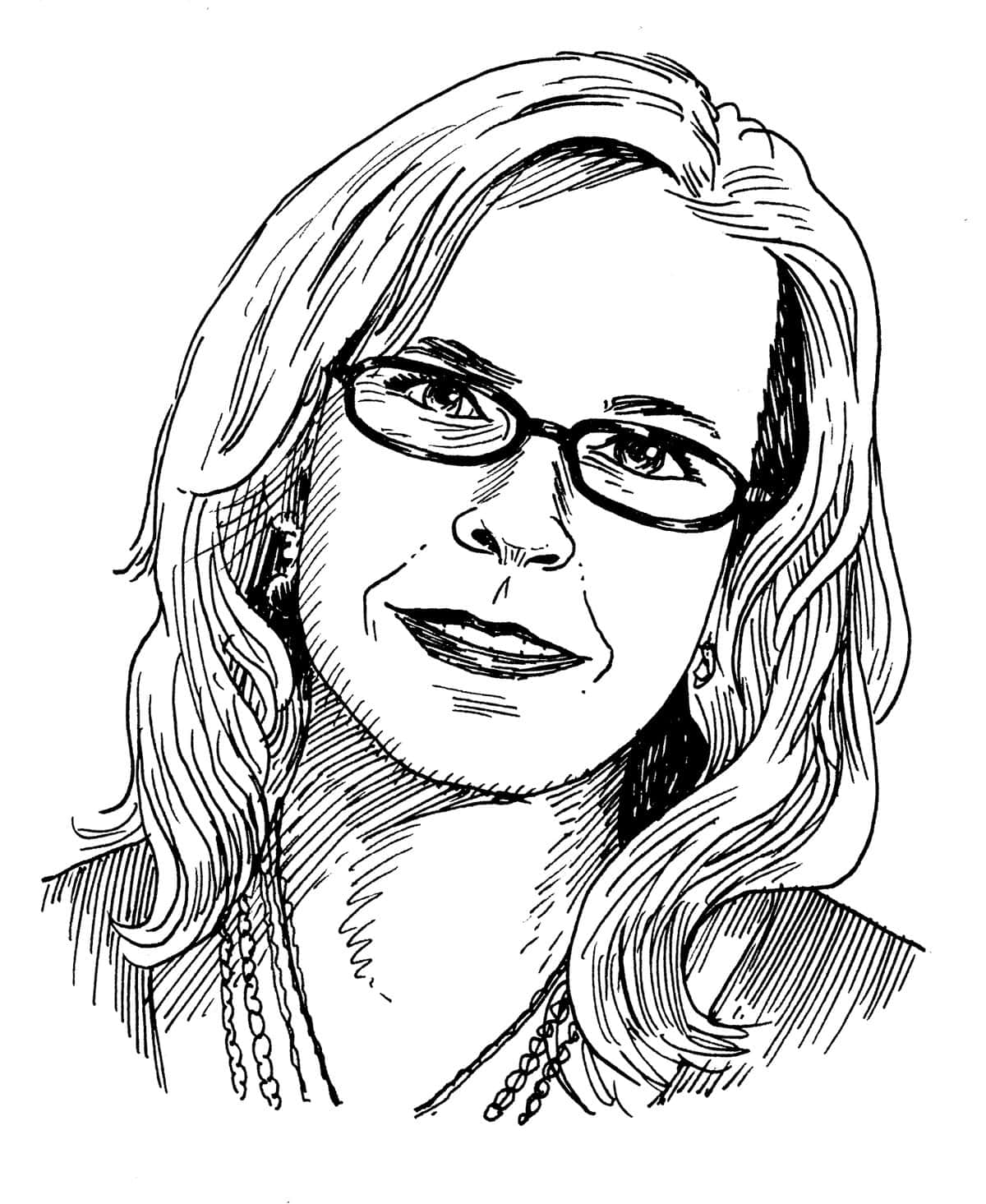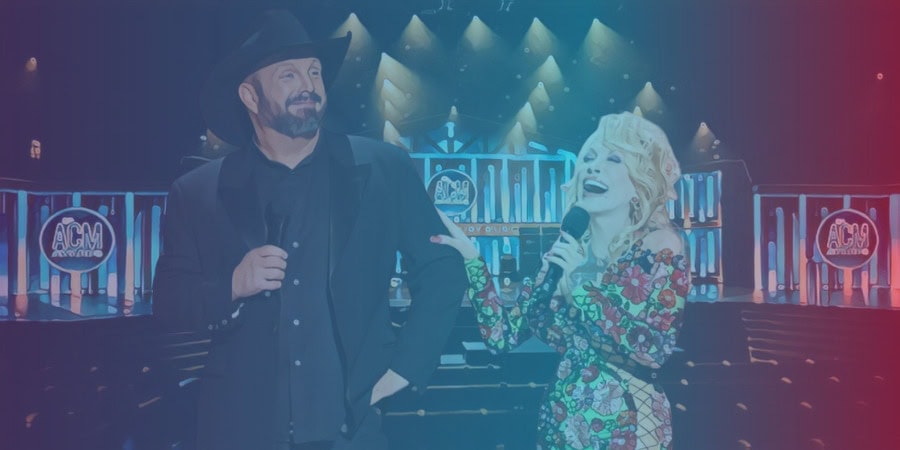An image of Susan Straight was uploaded to the website Culture.org in 2013.
My mother was so grief-stricken when President John F. Kennedy was assassinated on November 22, 1963 when she went into labour. As a result, my brother was born the next day on the 24th.
When I was three weeks old, my first memory is of my mother crying in a wooden chair beside the Swiss clock she had brought with her since she was seventeen and arrived in California.
The tick tock sound of the clock was always sad, even now when it’s in her living room. I recall trying to climb onto her lap, in an attempt to comfort her or myself, but she had no lap and I slid off and sat by her feet near the lead pine-cone-shaped weights that kept the clock ticking.
My father had left us, when I was refusing to eat oatmeal, and the president had died.
That night, she left me with a neighbour and set off alone to the hospital. While she was gone, a Santa Ana windstorm, as they often did in our small, rural area of one-bedroom homes and dirt roads in inland Southern California, blew open the door to her house.
When she returned the next day, the place was filled with tumbleweeds and a layer of dirt and sand that had covered the yellow layette she had knitted in anticipation of my brother’s birth. My mother wept as she cleaned out his bassinet and put him there.
She taught me the names of the items she had made, and since I was her only daughter, she taught me to knit, as she had learned in Switzerland, winding the yarn around pieces of hard candy.
As I worked the needles, the yarn unwound around the candy and if it fell out, I could take a break and eat the peppermint or butterscotch.
I have three half-siblings through my father and stepfather, and four step-siblings from my stepmother. Additionally, I have many foster brothers and sisters who were part of our family while I was growing up.
However, my brother Jeff and I were the only ones who shared the same blood. We had similar physical features, such as the same type of wavy, blond hair, identical teeth spacing, and matching eyes the hue of faded jeans.
When I was three, my mother taught me to read in order to prevent me from disturbing the woman who looked after me. On the other hand, my brother had taught himself how to run around and pick up things such as rocks, snails and small wooden guns right when he could walk.
We were practically the same person, but I embraced my eccentricities through writing, and went to college, while he chose to become a house painter and citric farmer, opting for a life of independence, with no ties to modern society.
His existence was largely undocumented, with no driver’s licence, no social security, no tax records, and a limited amount of photos. He never had a computer or mobile phone, and even disliked using landlines to contact me.
Ten years have passed since his death, which occurred when he was thirty-eight. He would be forty-nine now. The longing for him has not diminished in all that time; I miss him with the same intensity each and every day.
This is what I was left with:
The Levi’s jacket he wore, lined with sheepskin, had holes on the left side from when someone had thrown battery acid at him. He left it when he moved out of the house I still live in, where he had stayed with me and my husband when we were all very young–at a point when we had to ask him to go.
Back then his lifestyle, which people now watch with fascination on HBO, was perilous, involving drugs that were locally brewed and unheard of before shows like that were made. When I became pregnant, I had to make a decision for the sake of my kid.
Only in winter, when the wind blows fiercely from the mountains we used to climb in our childhood, do I wear his jacket. My daughters then remark that I look just like him, like how we were–foolish inland Californians from an impoverished background.
We had a great time.
My brother left me his Mexican fighting hen, Coco, of Chihuahuan extraction. At twelve years old, she had been living with a caretaker in a barn, surrounded by an orange grove on a ranch where two men named Little and Big Jose raised palm trees and roosters.
Coco was the mother of some of those roosters, but my brother was too gentle to have them fight and so he trained them to sit with him on the couch and watch football and eat Doritos. When we inherited her, she hadn’t been allowed to roam freely, due to her fierce nature.
I gave her a large cage of her own and now, a decade later, she still lays eggs, guards them and I never take them away. She tolerates me and listens to me, but when I let her out, I need to secure my American and English hens in their cages before she launches herself at the chicken wire.
The way my youngest daughter takes care of Coco is a testament to her love for her gone uncle. When Coco once tried to eat a dandelion whole and started to choke on the stem, my daughter and I held her as she pulled out the green filament from her beak.
My daughter whispered, “I think that was the scariest thing I’ve ever done, but it was Uncle Jeff’s chicken”.
On my seventeenth birthday, he presented me with a tree that he had nurtured from a tiny seed. This Brazilian tree had an iguana green trunk and thorns like steak-knife tips.
It was planted in the sidewalk strip in front of my house, and he said to me and my girls, “This is your security tree. If I’m not around, anyone who tries to bother you will have to deal with this.”
But he’s not around anymore. The tree is adorned with pink petal-like blooms every autumn, and they all fall off shortly before his birthday.
When I’m feeling most sorrowful, the clouds of little white puffs, encasing the dark seeds, drift throughout the area in the breeze. Each year, the people in the area remark, “Look at that fluff from your brother’s tree.”
He bequeathed me an old-fashioned wedding trowel and a Lynyrd Skynyrd CD, which he had given me to expose my three daughters to his beloved songs. During the funeral home gathering, we played “Simple Man” as people arrived and “Free Bird” for the memorial.
This year, when I mentioned that, someone asked me, “You’re kidding–that was ironic, right?” Following that, they asked, “Did people hold up lighters?”
I stated that we were from Riverside and did not understand irony. My brother was no exception in this regard. When he resided there, he would answer the phone with, “What the hell do you want?”.
When I mentioned it was possibly a person from my university teaching job, he replied, “They still want something. I don’t care who it is. Everyone has something they want.” Then he would start singing “Everybody Wants Some”–the Van Halen song.
Whenever “Free Bird” would come on the car radio during the years I drove my daughters around, they would instantly become quiet and understanding when I increased the volume.
Despite the sadness that was inside me, I always hid my tears. Now they are grown, with the youngest having obtained her driving licence last month, so I am now free to let go of my emotions when I hear the song on the radio.
I usually drive through the desert, or along the dull stretch of highway north of the house we returned to after I was born, a hospital just three blocks away from where I still live today. There, he used to live with me, and one night he cut down a large agave plant with a machete.
He was angry with someone and wanted to use the machete for revenge, leaving an empty space near the street where his spiky-thorn pink-flowered tree currently stands tall, fifty feet in the air.
My ex-husband recalled that a week ago, “He never wore a shirt and had blood all over him.” Blood from him is still in the wooden windowsill of the living room, where he must have been looking out when I was coming home.
The tree that Susan’s brother left to her seventeen years ago is often referred to as the “security tree”. This photo was taken by Douglas McCulloh.
The words of the drug dealer who had been living on my street for a short time were lost on me. Nonetheless, I have them etched in my memory. After he had sideswiped my much-loved, recently purchased, van which was used to transport those girls, he refused to pay the $324 in damages.
My brother then declared that if the money could not be obtained, he would go down there and demand $324 in satisfaction – saying that he would need it taken off the dealer’s face.
I received the funds. That was how he expressed his love for me and my family. He would use his chain saw to prune trees and then show us the huge wound on his stomach from when the saw let out a kickback while he was cutting the orangewood to sell.
“Do you want to remove the sutures for Uncle Jeff?” he’d joke in his peculiar voice. He always brought us oranges, grapefruit, avocados, cherry tomatoes, and firewood.
I have five remaining pieces of orangewood that I’m not able to burn. I attempt to place them in the stone fireplace he used to enjoy, however I’m unable to do so. The wood is located by the river rocks he assisted me in gathering, and once the winter ends I clean up the cobwebs.
Twenty-one years ago, he was employed by his first boss to paint my house with his group of friends who had been with him for life.
Last week, his old employer visited because it was time. His own brother was in the process of sanding the shingles, and I held in my hand some of the paint chips his sibling had used – tiny pieces of red and green resembling fingernails.
That made me really sad. His old boss admitted to me, “He had a special eye for colour, able to recognize how different hues worked together. But I never told you this before – he was my Bukowski. Whenever someone would ramble like a fool, he’d shake his head and give a wry smile, saying ‘I don’t get that station.'”
We had a transistor radio, yellow in colour and about the size of a grapefruit, which was attached to our bike handlebars. We would listen to Van Halen, playing “Runnin’ with the Devil” and “Everybody Wants Some”. He never owned an iPod.
When mom noticed the dreaded tick tock had ceased, she’d always tell us to “wind the clock”. Our brother would laboriously tug on the pine-cone weights until she scolded us. He used to swing from them while he was still a babe in that small living area.
The truck belonging to my brother, which crashed into the palm tree in front of the Jack in the Box a mile away from my house, ended up taking his life. The accident occurred a few blocks from the hospital in which we were both born.
His closest friend since the age of five, who used to stay with him during the hard times, had killed someone three days prior to the crash. My brother had been in the van when it happened.
He had departed the friend’s house two days later, which was when the police had arrived, and then drove off the freeway at the closest exit to my house and collided with the tree. He had left me a voicemail that he was coming over, but I missed it. Was he headed here?
I kept his words on an answering machine for years, until I started writing this essay, 10 years after his passing.
The little beige plastic box sits on a wooden shelf in my kitchen, underneath another shelf with a woven straw basket from Mexico, something my parents bought when we were in Chihuahua when my brother was 12. Now, I have some of his ashes in it.
A gale blew all the doors and windows in my house open, causing my pup to panic and dash into the kitchen, where she accidentally knocked my machine off the shelf.
The result was that the message I had stored for a decade was wiped. The device still operates; however, my brother’s voice is no longer there.
My Uncle Jeff is always so eccentric, and today he’s calling out, “Hey, it’s Jeff, your Uncle Jeff!” He’s going to come by later with a puppy in tow.
It was morning when the incident occurred. That night at eight o’clock, he had an accident with his truck, when we were all at the junior-high gym nearby, having basketball practice.
One year after the event, Vendela Vida was interviewing me for the inaugural edition of the Believer. We all walked together from the gym and I recall the sirens, yet I quickly moved past the thought since they are always heard in this area. I pointed out the palm tree where his truck had crashed.
The bark of the tree in our old front yard used to overlap in a way that resembled brown, hairy fur. We would play with it and make things out of it. We also used to explore the Sugarloafs, a range of hills with boulders scattered around.
Even in the intense summer heat, we would stay there for hours, equipped with pickaxes, hammers, buckets and shovels. We went on a hunt for something that we believed was gold: mica.
It shined with a silver and gold colour, making us believe that we would become wealthy. We were free and carefree – no one watched over us, and the desert wind ruffling our hair, hawks in the sky and coyotes in the distance made us feel like the luckiest children.
I do not possess an altar, no gravestone that would serve as a remembrance, nor anything that could be deemed as valuable.
Every morning, I give Coco her favourite snack of cracked corn and bananas, and I make sure to wear my jacket when I go up into the hills that no one would describe as beautiful.
My brother and a friend of his once purchased dynamite from a guy in Orange County and drove it fifty miles in the trunk of a car during rush hour, without realising how much time had passed.
When they got to their destination, they set off the dynamite and watched the blast, but it never landed close enough for them to see the hole it made. My brother was amused as he told me the story later.
If You’re Interested, Check These Out
The impact of climate change is becoming more and more apparent as time goes on. As its effects grow increasingly visible, there is a heightened sense of urgency to address the issue. Consequently, a number of initiatives have been put in place in order to try and curb the damage that has already been done.
















